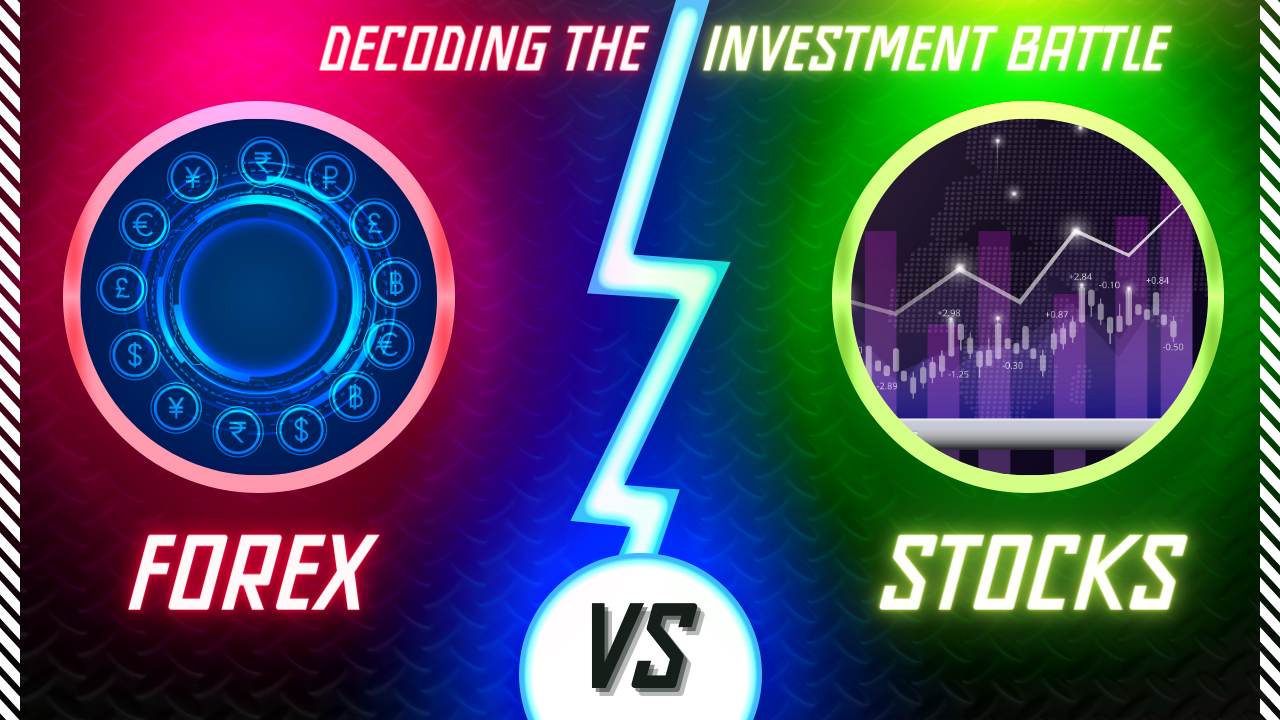In the vast array of investment opportunities in the present market, forex trading and stock investing stand out as popular options for individuals looking to grow their wealth. It isn’t too farfetched to think that both of these investment instruments offer a wide range of opportunities to grow and diversify your profitability portfolio.
While both avenues offer potential rewards, understanding the differences and advantages of each is crucial in making an informed investment decision.
Working alongside a reliable trading broker like Trade Nation is key to making the most out of your profits in the individual sectors of investment.
In this article, we will delve into the intricacies of forex trading and stock investing, comparing their market characteristics, discussing the pros and cons, exploring trading mechanisms and strategies, and ultimately guiding readers toward determining which option aligns best with their investment goals and preferences.

Understanding Forex Trading and Stocks Investing
Before we get into uncovering information about the comparison between forex and stocks, it is quintessential that we understand the basic concepts of these elements first.
Forex trading
As the name would have it, forex trading, or foreign exchange trading, involves buying and selling of currency pairs. The main prospect of this trading niche is to capitalize on the fluctuations that grace the market. It also provides traders an opportunity to profit from the volatility that’s common in the global currency market.
Stocks trading
The stock trading practice, on the other hand, involves buying shares in publicly traded companies. This accounts for the traders having partial ownership of the company when they buy their stocks. The investors or traders earn through price appreciation, dividends, compounding interest, etc.
What are the Differentiating Factors between Forex and Stocks Trading?
More than the differentiating factors, the market characteristics give us an idea about the aspects or factors that determine the foundation of both forex and stock trading.
Let us understand them in detail:
- Liquidity
When it comes to liquidity, the forex trading market is hands down the most liquid involving over $6 trillion worth of trading every day. It provides the trader access to unmatched trading opportunities followed by quick entry and exit. Not just that, the forex market operated 24 hours a day and 5 days a week, allowing round-the-clock trading practices.
Stock trading, on the other hand, is slightly different. It has established liquidity and has specific trading hours every day, which means market accessibility isn’t the most feasible.
- Volatility
The next factor of comparison is the volatility and market risk. The Forex trading market is highly volatile and is influenced by a lot of economic and geopolitical influences in the market. The traders in question can either profit from the volatility or experience huge losses in the process.
The stock market, on the other hand, is a lot less volatile compared to forex. It offers stability and the opportunity for the long-term growth of your investments.
- Regulatory environment
Another aspect that’s worth considering when comparing the forex market and the stock market is the regulatory environment. Both forex and stock market trading are highly regulated by global regulatory bodies to maintain optimal transparency. These also safeguard the interests of the investors in the long run.
With that discussed, let us divert our focus to the varying investment considerations that come with the forex market and stock market trading.
Investment Considerations: Pros and Cons
Before you venture into investing your money in forex or stock market trading, weighing out the pros and cons is quintessential. This gives you a better idea of how to proceed with the trading process and where to start things.
- Profit potential
When it comes to gains and profit potentials, it isn’t surprising that the opportunities are pretty extensive for forex trading. Due to leverage, it becomes a lot easier to magnify the gains for the traders in no time at all.
Stock investing, on the other hand, offers potential gains through capital appreciation, dividends, and long-term growth. It requires a more patient and strategic approach. You can’t expect immediate big gains with stock investment and trading.
- Risk factors
With the magnitude of gains and profits that you can reap through forex trading, it isn’t surprising that the allied risks are also pretty high in this case. The market volatility of forex trading is pretty steep, which goes to show that the risk factors are high too.
Stock trading has a lower risk magnitude in comparison. However, you can’t rule out the risk factor by saying that there are no risks involved. There are risks of an economic downturn to take down the appreciation of stock to the bottom. Hence, risks are prevalent in this case too but the magnitude of it is quite on the lower end.
- Accessibility
Forex trading is accessible to retail traders with varying capital sizes. Brokers offer leverage and the option to open micro and mini-trading accounts, allowing individuals to participate. So, there are a lot fewer entry barriers when you come to think of forex trading.
Stocks, on the other hand, require the individual to often venture into the prospect of trading with a larger capital in question. However, online brokerages and fractional shares have made stock market access more inclusive.
What are the Best Trading Strategies for Forex and Stocks?
Now that you pretty much know everything there is to know about stocks and forex trading, you must venture into the different trading strategies as well. There are quite a few different ones worth exploring, so let us break them down for you:
Forex trading tips
- Indulge in spot trading, futures contracts, and options
- Choose from the different styles of trading options
- Familiarize yourself with the market and the ongoing market trends
- Monitor the trade to capitalize on currency movements
Stock trading tips
- Indulge in fundamental analysis
- Evaluate the company’s financials
- Keep a check on the market trends and the market conditions
- Indulge in technical analysis of the stock before investing
- Try different styles of stock investing like value investing, growth investing, and dividend investing
Once you have these individual tips sorted, it is also crucial that you focus on your personal investment goals. You must diversify your investment portfolio and include different types of trading means to make the most out of the whole trading experience.
Both forex and stocks can play a role in diversifying investment portfolios. Combining different asset classes can help reduce risk and optimize returns. Investors should consider their risk tolerance, financial goals, and time horizon when building a diversified portfolio.
Also, paying close attention to the market is crucial. Since both of these trading niches are driven by the market’s volatility and economic stability, keeping yourself informed about the trends will help the traders make informed decisions before making the final trade.
Conclusion
The ongoing battle between stocks and forex trade seems never-ending. If you have been confused about things all this while, we hope this comparative analysis gives you all the insights that you have been looking for. Each option presents unique characteristics, advantages, and risks. Ultimately, a well-rounded investment portfolio may include a mix of both forex and stocks, taking advantage of the strengths each avenue offers in the quest for financial prosperity.



